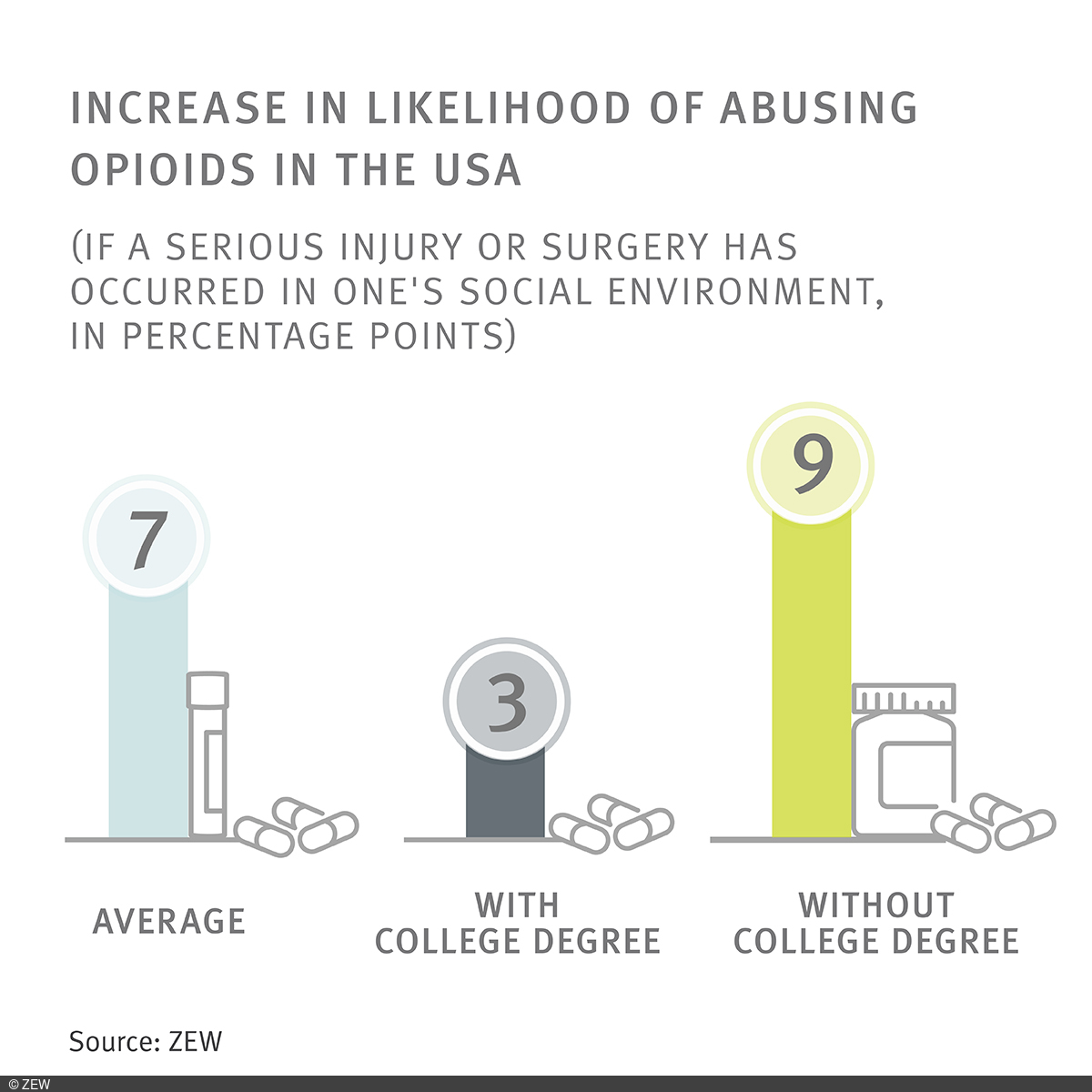Opioid Crisis: Friendships Can Pose a Risk
ResearchZEW Study Analyses Group Effects on Opioid Use in the USA
The social environment is one of the most fruitful illegal sources of supply of opioid painkillers in the USA. Between 2010 and 2019, over half of all US Americans who abused painkillers obtained them from friends and family, most of whom had access to excess prescription narcotics due to serious injuries or operations. These are the findings of a study conducted by ZEW Mannheim together with other research institutions, in which European and US researchers shed light on the opioid epidemic in the USA using longitudinal data.
“Our findings make it clear that the personal environment is not only the source of drugs, but also a key determinant of their misuse. More prevention efforts are urgently needed to curb the opioid epidemic in the US. Better educating young people about the risks of drugs, for example via advertising campaigns on television and social media, could help,” says co-author Effrosyni Adamopoulou, PhD, researcher in ZEW’s Research Group “Inequality and Public Policy”.
Old friendships examined
17 per cent of the population aged 25 to 34 in the United States abused painkillers in 2008. The researchers investigated the influence of the peer group to see how this abuse develops. The results show that those who maintained a close relationship with someone who had a serious injury or surgery in the previous twelve months were seven percentage points more likely to misuse opioids themselves.
The group effect had a particularly strong impact on people without a university degree. While the probability was just three percentage points for people with a college degree, it increased to nine percentage points for those without a degree.
“We see a worrying link between friendships and prescription drug misuse in the US. Studies show that the initial easy access to opioids can later lead to an addiction to cheaper illegal drugs such as heroin, as well as to criminal offences such as child abuse. A spiral develops that has a massive negative impact on the rest of the person’s life,” says Adamopoulou.
Longitudinal data since 1994 analysed
“To make sure that the friendship already existed before the drug use, we analysed the data of opioid-abusing adults aged 25 to 34 along with their best friends from their school days. The friendships were therefore formed at least 14 years before the study began, ensuring that they did not come into contact with each other because of the drugs. Conversely, the drug misuse was caused by the friendship,” says Adamopoulou, explaining the study’s approach.
The study is based on data from the National Longitudinal Survey of Adolescent Health (Add Health), which has been collecting longitudinal data on the state of health of the US population since 1994. Over 20,000 people took part in the first wave of the survey. The researchers used data from three waves in total, which included information on demographics, health and the parental home. In addition, interviews were conducted at home, including questions about close friendships, among other things. The friends were also part of the survey, enabling analysis of their data as well.



